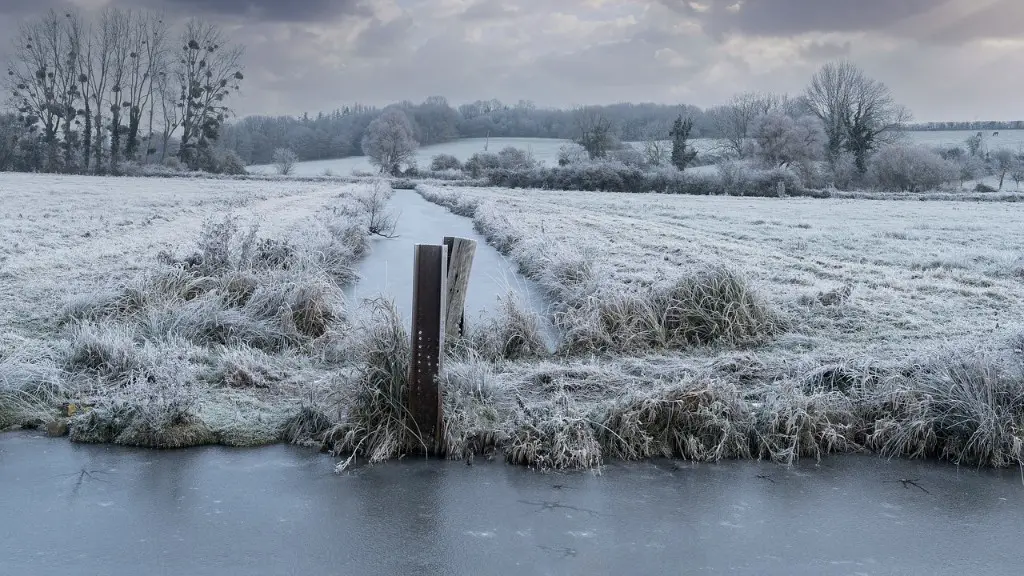History of the Nile River in Egypt
The Nile River is one of the most influential rivers in the world and has played an integral role in the development of Egypt. The river was of immense importance to ancient Egyptians as it was their source of water, food and transportation, as well as providing fertile ground for crop cultivation. The Nile has been an important source of life in the region for thousands of years, and its impact on Egyptian culture is deep and long-standing.
The Nile River was an indispensable part of Egyptian daily life and provided Ancient Egyptians with all the basic necessities of life. The hot and dry climate of the area made it difficult for people to survive without the river, and its waters were used for drinking and irrigation. The waters of the Nile were also used for bathing and washing, as well as for trading and traveling. As a result, the river formed an important part of the Ancient Egyptian economy and culture.
The significance of the Nile River in the development of Egypt is undeniable. In the Old Kingdom period, numerous large-scale irrigation projects were carried out to take advantage of the river’s floods, allowing people to cultivate crops and prosper. The river also enabled the development of an organized form of government, in addition to allowing the great monuments of the period, such as the Great Pyramids at Giza, to be built.
Despite its importance in Ancient Egyptian life, the importance and power of the Nile began to decline in the Middle Kingdom period. The failure of the Nile’s floodwaters to reach the Delta due to shifts in the river’s course caused food shortages that affected the population and weakened the centralized Egyptian hold on the region. This period marked a change in the economy and lifestyle of many Egyptians, who began to rely more and more on trade and maritime activities.
Today, the importance of the Nile continues to be recognized, although it is not the same source of life it once was. The river still provides freshwater to an estimated 100 million people and plays a major role in Egypt’s economy. It also continues to be a major source of transportation and trade.
Economic Impact of the Nile River in Egypt
The economic impact of the Nile River on Egypt is undeniable. As a result of the river’s flooding and the fertility of the lands it touches, agriculture has been a mainstay of the country’s economy for centuries. The river’s waters allow for widespread irrigation, which has allowed the cultivation of many crops that otherwise would not be able to thrive in such an arid climate.
The Nile River is also an important source of fish, which are caught in the river’s waters and sold in markets across the country. The fish provide an important source of protein for many Egyptians and an important source of income for fishermen. In addition, the Nile has provided a reliable source of transportation for goods and people, allowing the development of trade routes and the growth of cities along its banks.
The use of the Nile River for energy is also an important part of the economy. In recent years, Egypt has been able to take advantage of the great amounts of power that can be generated from the river’s waters. Through the construction of dams and hydroelectric plants, Egypt has been able to produce a significant amount of power that is used to support industries, businesses and homes across the country.
The importance of the Nile River to the Egyptian economy cannot be understated. It is an important source of life for the country, providing food, water, transportation, energy and employment. The river has been an integral part of the country’s development for centuries, and its importance is sure to remain for many years to come.
Environmental Impact of the Nile River in Egypt
The environmental impact of the Nile River on Egypt is a concern for many. The river’s waters are used for agricultural and industrial purposes, as well as providing drinking water for many of the country’s inhabitants. As a result, pollution of the river has become an increasing problem in recent years.
The chemicals and pollutants that are used to fertilize the crops are often released into the river. As a result, these pollutants can contaminate the water, leading to health problems such as diarrhea, cholera and other water-borne diseases. In addition, the river is increasingly being used as a dumping ground for industrial waste, which further pollutes the waters.
The destruction of the river’s wildlife is also an issue of concern. While the building of dams and hydroelectric projects have helped to provide energy, they have had the unfortunate side effect of blocking the migration paths of fish, leading to a decline in their populations. The destruction of natural habitats is also a cause for concern, as it deprives the local wildlife of the essential resources they need to survive.
The Nile River is an important part of the Egyptian culture and economy, and it is essential that its impact is monitored. If the necessary steps are taken to curb pollution, protect the wildlife and reduce industrial and agricultural waste, the Nile can remain a source of life for the country for many years to come.
Cultural Impact of the Nile River in Egypt
The cultural impact of the Nile River in Egypt is undeniable. It has been an integral part of the life of many in the region for thousands of years and is deeply intertwined with their history, customs and beliefs. Throughout the ages, the river has been a source of life, used for both practical and spiritual purposes.
The importance of the river’s waters has been reflected in religion and mythology, with ancient gods associated with the river and its floodwaters. The flooding of the Nile was seen as a divine blessing and was celebrated by the people. This reverence for the river is still seen in Egypt today, with many of its monuments, ceremonies and religious festivals still reflecting its importance.
The Nile River has also been an important factor in the development of art and literature in Egypt. Numerous ancient Egyptian artifacts have been found along the Nile, providing insight into the lives of the people of the time. The river has also been a source of inspiration for numerous works of literature, poetry and art.
Today, the Nile is still an important part of the culture of Egypt. Although its importance in people’s daily lives has diminished, it still remains a symbol of life and prosperity for the people of the country. The river is an integral part of the culture, history and beliefs of the Egyptian people and its impact can still be felt in many aspects of life in the country.
Environmental Conservation of the Nile River in Egypt
Throughout history the Nile River has been an essential resource for the people of Egypt, providing freshwater, food and transportation. However, due to increasing pollution and environmental degradation, the river’s ecology and vitality are under threat. As a result, significant steps must be taken to ensure the sustainable use and conservation of the river.
One of the main challenges facing the conservation of the Nile is the increasing levels of pollution and wastewater entering the river. This is a result of the industrial and agricultural activity that takes place along the river, with many chemicals and other waste materials regularly being released into the river’s waters. The government, in conjunction with international organizations and other stakeholders, must take action to reduce the levels of pollution and protect the river’s ecology.
In addition, the construction of dams and hydroelectric projects has had a significant impact on the ecology of the Nile. The building of these projects has had the unfortunate side effect of blocking the migration paths of fish, leading to a decline in their populations. It is vital that measures are taken to ensure the safe construction of such projects and to protect the natural habitats around the river.
The conservation and protection of the Nile River is essential for the future of Egypt and the region. The river’s ecological health is integral to the health of the inhabitants and should not be overlooked. It is vital that the necessary steps are taken to reduce pollution, protect wildlife, and ensure the sustainable management of the river.
Legislation of the Nile River in Egypt
The impact of the Nile River on Egypt is undeniable and as a result, the government of the country has put in place a number of laws to protect the river and ensure its safe and sustainable use. The Nile River Law No. 4 of 1959 was the first law to be introduced and it set out the legal framework by which the river’s waters are to be managed and allocated.
The law divides the Nile River into two main water areas, the Blue Nile area and the White Nile area, and outlines how and where each area’s water can be used. It also puts in place regulations for the construction of dams and other development projects, as well as for the protection and conservation of the river’s wildlife and ecology.
In addition to the Nile River Law, the government has also introduced a number of other laws to protect the environment and ensure the safe and sustainable use of the river. These include the Water Resources Law, the Environmental Protection Law and the Protection of Natural Resources Law.
The legislation in place to protect the Nile River is an important step in ensuring the river’s sustainability and preserving its ecological and cultural importance in Egypt. It is essential that these laws are enforced to ensure that the river remains a vital source of life for the people of the country.





